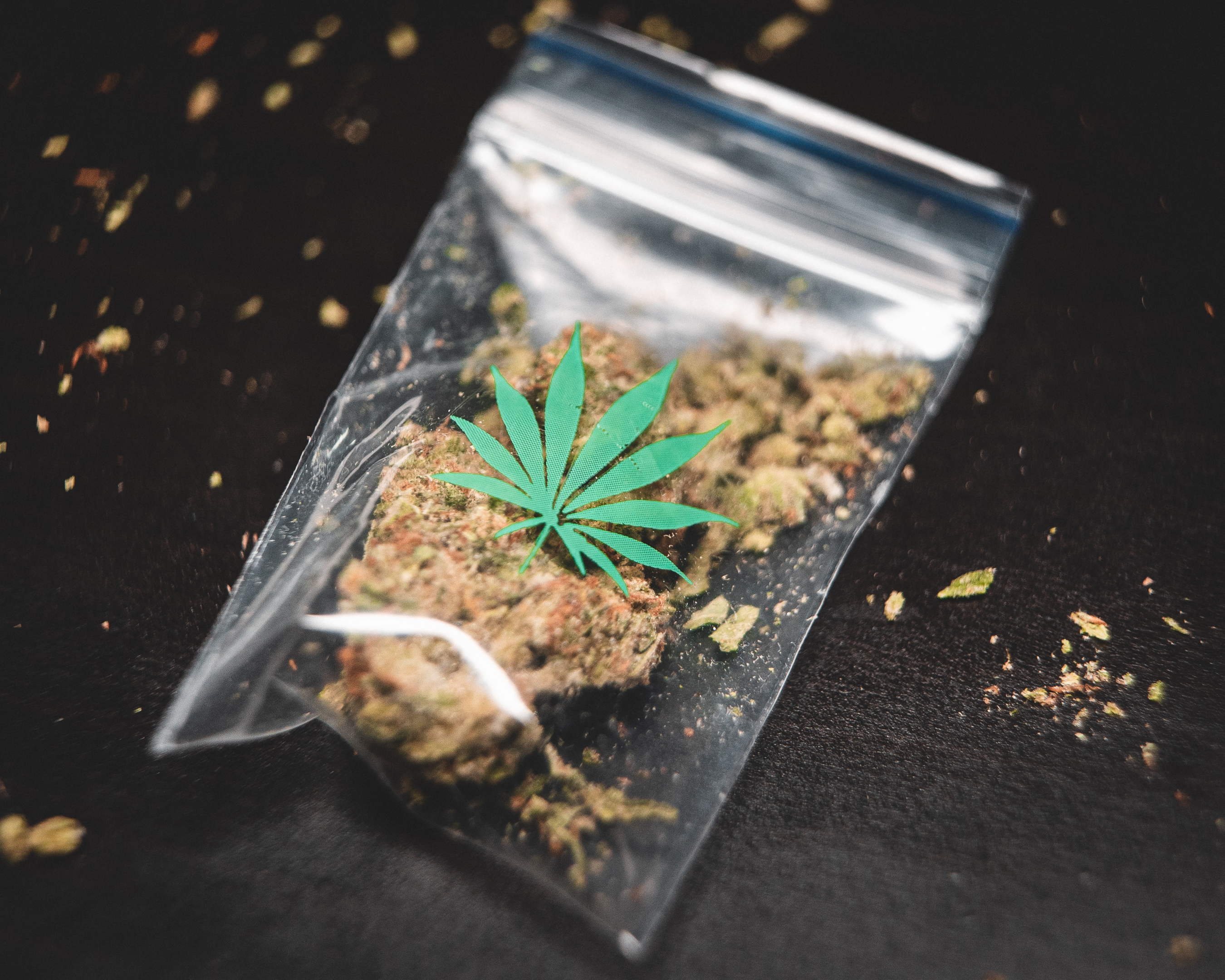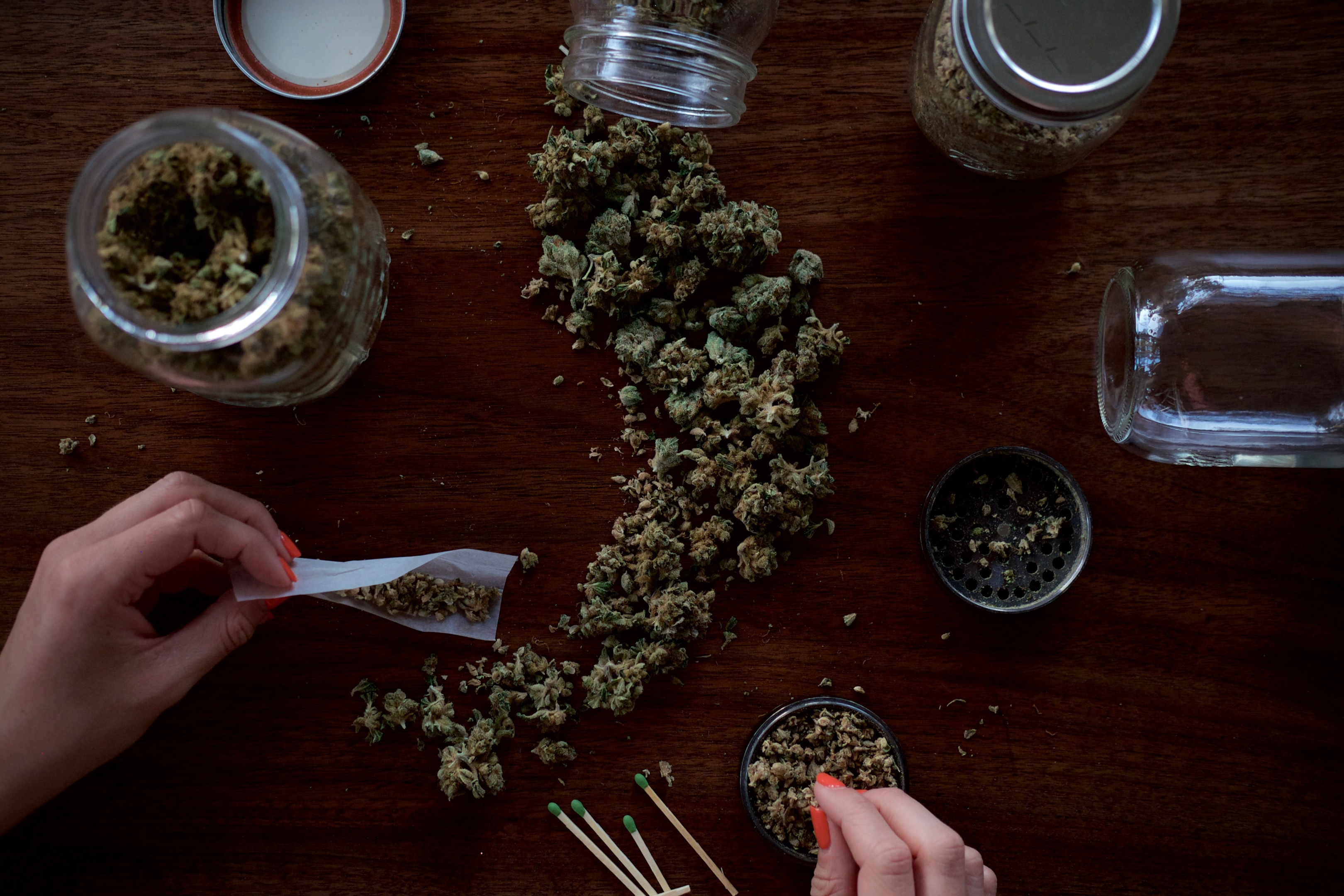Austin Drug Charges Attorney
Drug Lawyer in Austin, TX | ATX Legal
Drug crime in Texas can vary in severity depending on a wide variety of factors. They can be as low as a class C misdemeanor (on par with a traffic ticket) for possession of drug paraphernalia, all the way up to life imprisonment for manufacture/delivery of a large amount of a schedule 1 substance.
Regardless of the severity of the drug charges, it’s always recommended to speak with an experienced Austin drug lawyer first to better understand the charges brought against you and to navigate the criminal justice system. Rob Chesnutt has been handling criminal defense cases for over 9 years. Fill out a contact form or call our law offices at 512-677-5003 to speak with an Austin criminal defense lawyer.
Simple Possession charges
Simple drug possession charges are typically levied when an individual is found to be carrying a controlled substance for personal use. In many instances, this charge is classified as a misdemeanor drug crime, particularly when the quantity of the drug is small. However, the severity of a the criminal offense can escalate based on various factors.
A significant consideration for the specific criminal charges is the classification of the drug involved. Texas law separates drugs into various “penalty groups”, with Penalty Group 1 substances being viewed as the most harmful due to their high potential for abuse and minimal medical usage. Holding Penalty Group 1 substances can lead to harsher charges and penalties.
On the other hand, possession of drugs classified under Penalty Group 4 will often lead to a lesser charge. The quantity of the drug in question will also have a significant impact.
Manufacture/Delivery Charges
Manufacture or delivery of controlled substances is a serious offense under Texas law. The act of manufacturing involves the production or creation of drugs, while delivery refers to the transfer of controlled substances from one party to another. This transfer doesn’t necessarily require an exchange of money.
By way of example, the manufacture or delivery of a Penalty Group 1 substance like heroin, in large amounts, can lead to a first-degree felony charge. This could result in a hefty fine and a potential prison sentence of life or up to 99 years.
On the contrary, manufacture or delivery of substances classified under Penalty Group 4, usually results in lesser charges. However, it’s important to note that even in these instances, the consequences can still be severe and long-lasting.
If you are facing manufacture or delivery charges, it is crucial to seek out Austin criminal defense attorneys as soon as possible. An experienced attorney can help you understand your options and build a strong defense strategy.
Possession of a Dangerous Drug
Possession of a dangerous drug in Texas is classified as the holding of substances that are not covered in the penalty groups but are still controlled by the Texas Dangerous Drug Act. This category includes prescription drugs that are obtained without a legitimate prescription or drugs used in a matter inconsistent with their labeling.
The penalties can range from a Class A misdemeanor for small amounts, which can lead to up to one year in jail and a fine up to $4,000, up to a first-degree felony for larger quantities, which could result in a sentence of life imprisonment and substantial fines.
An individual’s previous criminal history can also influence the severity of the charge and potential penalties. Even prescription drugs can lead to serious charges if misused, emphasizing the importance of choosing high-quality law firms and knowledgable defense attorneys when facing any drug-related charges.
Marijuana Possession in Travis County
In recent years, there has been a significant shift in cannabis policies within Austin and other cities in Travis County. The Austin City Council took a pivotal step in January 2020 by voting to largely end arrests and fines for low-level marijuana possession.
Similarly, an increasing number of cities in Travis County are following suit, with law enforcement agencies deprioritizing marijuana-related offenses. However, while these policy changes reduce the likelihood of prosecution for possession of small amounts of marijuana, they do not necessarily eliminate the risk entirely. Therefore, individuals should still exercise caution and remain aware of the evolving nature of cannabis laws in Texas.
Effects of Prior Arrests and Convictions on Drug Charges
Prior arrests and convictions can significantly influence the outcome of any new drug charges an individual may face. A past arrest or conviction for a drug-related offense can lead to harsher sentences, including longer jail or prison terms, higher fines, and more stringent probation conditions.
Furthermore, individuals with previous convictions often find it challenging to negotiate plea deals or receive leniency from the court. These effects underscore the importance of legal representation, particularly for individuals with past convictions, when navigating the complexities of drug-related charges. Individuals should fully understand the potential implications of their past actions on current charges, and work with a reputable law firm to mitigate any adverse effects.
Drug Penalty Schedules
In Texas, drugs are classified into several “Penalty Groups” which determine the severity of the possible sentence if convicted of possession, manufacture, or delivery. The applicable laws are found in the Health and Safety Code rather than the Texas Penal code like most other criminal offenses. Here are the main penalty groups and example substances for each group:
Penalty Group 1: The drugs in this group attract the harshest penalties. They include opioids like heroin, methamphetamine, cocaine, and oxycodone.
Penalty Group 1-A: This group specifically contains different forms and quantities of LSD.
Penalty Group 2: Substances in this group include hallucinogens and synthetic cannabinoids, like ecstasy and amphetamine.
Penalty Group 2-A: This group comprises synthetic cannabinoids that mimic the effects of cannabis.
Penalty Group 3: This group includes lower potency substances, many of which have legitimate medical uses but are still abused. Examples are Valium, Xanax, and Ritalin.
Penalty Group 4: These are substances that contain small amounts of narcotics or active medical ingredients. Examples include compounds like Dionine and Motofen.
This is a simplified overview, and the actual drug schedules contain many more substances and specific rules. The penalties faced for offenses involving these drugs can vary greatly depending on the quantity, the intention (personal use, delivery, manufacture), and the individual’s previous convictions.
Because of the numerous groups and amounts leading to a wide range of charges, even criminal defense lawyers should always double-check the drug laws to make sure the criminal case is properly charged.
Federal Crime
Federal crimes fall under the jurisdiction of national law and can land you in Federal court. These are offenses involving illegal substances that violate federal laws, typically those that cross state lines or involve international borders. For instance, trafficking large quantities of drugs, manufacturing controlled substances on a large scale, or selling drugs on federal property can all constitute federal drug crimes.
Penalties for federal drug crimes can be severe, often involving lengthy prison sentences and hefty fines. They are usually more serious than state penalties and do not offer parole. Investigations are handled by federal agencies like the Drug Enforcement Administration (DEA) and cases are prosecuted in federal courts.
It’s important to consult with a a criminal defense attorney well-versed in the Federal system if facing potential federal drug charges. Austin criminal defense lawyer Rob Chesnutt is barred in the Western District of Texas.
Dealing with a Simultaneous Criminal Charge
In some cases, individuals may find themselves facing drug charges in conjunction with other criminal charges such as Driving While Intoxicated (DWI), assault, or unlawful carry of a weapon. When these offenses are layered together, the legal situation can can affect both the drug crime charges and the DWI defense.
A DWI charge paired with a drug charge, for example, can lead to heightened penalties, including longer driver’s license suspension periods and more severe fines. If drugs are found on an individual during an arrest for domestic assault, the penalties for both the assault and the drug charge can be escalated.
Unlawful carry of a weapon becomes a more serious offense when paired with a drug charge. Under Texas criminal law, for example, possessing a firearm while committing a drug offense can lead to a conviction for a separate felony offense, with penalties including substantial fines and extended periods of incarceration.
In all these scenarios, the services of a experienced criminal defense attorney become crucial in navigating the legal intricacies and advocating for the best possible outcome. Good criminal lawyers can mitigate the damages, but it’s not always easy.
Wide Range of Penalties for Drug Conviction
The penalties for drug crimes can vary significantly, depending on the nature of the offense, prior convictions, and other factors. At the more lenient end of the spectrum, some minor possession charges may be dismissed with the completion of drug education or treatment classes. This is often the case for first-time offenders, where the focus is on rehabilitation rather than punishment.
More serious felony offenses such as trafficking can result in severe penalties, including hefty fines and lengthy prison sentences. Those convicted of drug trafficking can face years, or even decades, in prison, especially in cases involving large quantities of drugs or the use of firearms. Mandatory minimum sentencing laws can further exacerbate the situation, leaving judges with little discretion in handing down sentences for certain drug offenses, especially when dealing with Federal offenses.
In between these extremes lie a wide range of potential penalties, which can include probation, community service, fines, and short-term imprisonment. Additionally, there are sometimes collateral consequences – such as suspension or revocation of professional licenses, and problems with employment. In all instances, it is crucial to have a skilled defense attorney who can effectively navigate the legal system and advocate for the best possible outcome.
Defenses to Drug Charges
There are several possible defenses to drug charges that can lead to a dismissal of charges or acquittal at trial.
The legality of the search and seizure.
If law enforcement officers did not follow proper procedures or violated the defendant’s legal rights in obtaining evidence, that evidence may be suppressed, potentially leading to a dismissal of charges.
Actual possession of the drugs.
This defense is often used when drugs are found in a location shared by multiple people, and the prosecution cannot prove beyond a reasonable doubt that the drugs belonged to the defendant.
Entrapment and False Accusations
This applies when police officers induce a person to commit a crime that they would not have committed otherwise. If the defense can prove entrapment, the charges may be dismissed.
In some cases, the defendant may argue that the drugs were planted, or that the substances seized were not illegal drugs. Both these defenses require substantial evidence and legal expertise to be successful.
Challenging the validity of drug tests and weight measurements
Here is another line of defense that can be employed. Errors can occur in the testing and weighing process, and these inaccuracies may lead to false positive results or inflated quantities of the drugs being reported.
A skilled criminal defense attorney could argue that the laboratory procedures weren’t accurately followed or that the equipment used for testing and weighing was faulty or improperly calibrated. In certain scenarios, if successfully argued, this may lead to the reduction of charges or even dismissal of the case.
Plea Bargaining in Drug Cases
Plea bargaining is a significant element in the court system, frequently used in drug cases.A defendant might agree to plead guilty to a lesser charge with a more lenient sentence, or in some cases can even agree to certain conditions to secure a dismissal. Our law firm emphasizes plea bargaining, because it often achieves the client’s desired outcome more quickly than other means.
However, it’s essential that defendants fully understand the implications of a plea bargain. Texas criminal defense attorneys can provide guidance on the potential consequences, including the impact on the defendant’s criminal record, and offer advice on whether accepting the plea bargain is in the defendant’s best interest.
Pretrial Diversion in Drug Cases
Pretrial diversion in criminal cases serves as an alternative to traditional criminal justice prosecution, particularly for first-time offenders charged with simple possession. Under this program, eligible defendants can avoid a criminal conviction and have charges dismissed through successful completion of specific conditions.
These conditions often include substance abuse education, community service, and regular drug testing, and sometimes court appearances. If the defendant meets all the program requirements, the prosecutor agrees to have the cases dismissed completely, leaving the defendant the ability to expunge criminal record. As such, most criminal defense attorneys consider pretrial diversion a great option in giving first-time drug offenders a second chance, offering them an opportunity to learn from their mistakes without the severe consequences of a criminal conviction.
Probation for Drug Convictions
Probation serves as another form of court-ordered discipline that allows offenders to serve their sentences without jail time, provided they comply with specific terms and conditions. These conditions are established to ensure that the offender maintains good behavior and does not pose a risk to society. In the case of drug convictions, a crucial part of probation often includes periodic or random drug testing.
This requirement serves as a deterrent to relapse and is a means to monitor the offender’s sobriety. The frequency of these tests can vary, depending on the severity of the original offense and the offender’s past substance use history. Any positive results may lead to severe consequences, including revocation of the probation and, possibly, incarceration. Regular meetings with a probation officer, mandatory attendance at drug counseling or rehabilitation sessions, and restrictions on certain activities or associations may also be part of the probation terms.
Drug Crime FAQs
Is drug possession a felony?
Drug possession can be classified as a misdemeanor or a felony, depending on the nature and amount of the substance involved, the intent of the offender, and the jurisdiction’s laws. Felony charges typically involve larger quantities of drugs or intent to distribute.
Isn’t marijuana legal in Austin?
While some states have fully legalized marijuana, it’s important to note that laws vary widely. In Austin, marijuana is not fully legal. However, law enforcement may use discretion in prosecuting low-level possession offenses.
What if I was arrested in a school zone?
Being arrested for a drug-related offense in a school zone often carries more severe penalties, due to a societal interest in keeping these areas safe for children. The charge is enhanced one level higher. For example, a State Jail Felony would be bumped to a third degree charge. This can lead to increased fines, longer probation periods, and extended periods of incarceration. It’s essential to consult with a knowledgeable attorney if you’re facing charges for a drug-related offense committed in a school zone.
We all have DMT in our systems at all times. Does that mean anyone can be arrested at any time?
I’m familiar with the Joe Rogan podcast also.
How Can Criminal Attorneys Help with Your Case?
An Austin criminal defense attorney can provide crucial legal representation and guidance for state and federal crimes, including drug crime. Austin criminal defense firm ATX Legal has the expertise to navigate the complex and ever-changing laws surrounding drug possession, distribution, and use. We have handled criminal cases in Austin Tx and across Central Texas for nearly a decade.
An experienced criminal defense lawyer can work with the prosecution to potentially reduce criminal charges or negotiate a plea deal. They can also defend clients in court and ensure their legal rights are protected throughout the legal process.
Schedule a Free Consultation with ATX Legal Law Office
Ready to take control of your case? Contact ATX Legal criminal law firm today for a confidential and comprehensive consultation. Rob Chesnutt stands out among Austin criminal defense lawyers because of the personal attention he gives to each of his Austin clients. He is dedicated to protecting your rights and achieving the most favorable outcome for your case.
Our rates are affordable compared to other Austin criminal defense attorneys, and payment plans are available. To learn more about our law office or to schedule a free consultation, call the law firm at 512-677-5003 or fill out our online contact form. Let ATX Legal be the ally you need in your fight against drug crime charges.




